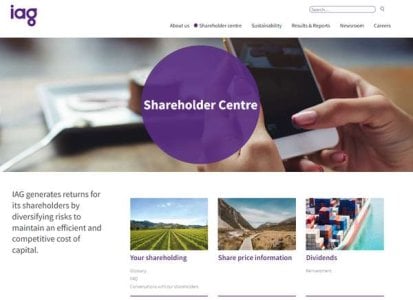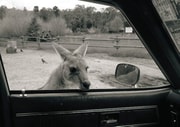Insurance company IAG gets massive class action lawsuit for algorithm-based increase
By
Danielle F.
- Replies 20
In our golden years, we hold on to the values we've cherished through the decades—trust, loyalty, and the belief that sticking with a company will earn us better service and even a better deal.
What happens when loyalty is exploited in exchange for profits?
This is the heart of a troubling issue involving the largest insurance company and a practice that will eventually affect millions of Australians.
Insurance Australia Group (IAG)—the largest general insurance company in Australia and New Zealand—has been hit by a class action lawsuit.
The lawsuit alleges that the insurance behemoth has been inflating premiums for its customers across Australia, a practice that could have affected millions.
The case centres around Kerry Reece, a Melbourne Storm fan whose loyalty is reflected in her decades-long commitment to her insurance provider.
Kerry believed that her company loyalty would be reciprocated.
Instead, she found herself having to cut back on life's little pleasures as her insurance premiums rose, despite her 'gold membership' status, which promised discounts and savings.
The lawsuit alleges that IAG used a computer-generated algorithm to implement a 'loyalty uplift', systematically increasing premiums for customers deemed less likely to switch providers, regardless of their actual risk profile or insurance cost.
While some customers thought they were receiving discounts for their loyalty, the base premium has been hiked up, rendering discounts meaningless.
If proven true, this practice is not just a breach of trust—it's a breach of the industry code and a misuse of a dominant market position.
The implications of this case are significant. If guilty, IAG will be required to compensate millions of customers.
The situation raised questions about the ethics of customer loyalty programs and the transparency of insurance pricing.
The Australian Securities and Investments Commission (ASIC) also assessed the situation as they sued IAG over similar allegations involving the loyalty discounts provided to home insurance customers.
While IAG denied the allegations and defended themselves in both cases, the regulator's increased scrutiny of insurer conduct is a positive sign for consumer protection.
This case is a critical reminder to review your insurance policies regularly and not to take loyalty discounts at face value.
It's essential to compare offers and ensure that your premiums are fair and reflect the coverage you're receiving.
As the class action against IAG unfolds, many will be watching closely—including Kerry Reece, who remains insured with RACV but is now questioning her loyalty towards the insurance provider.
It's a cautionary tale for all of us to stay informed and vigilant and ensure that the companies we trust are truly acting in our best interests.
Remember, loyalty should be a two-way street, and your insurer's commitment to you should be as strong as yours is to them.

Have you encountered unexpected premium hikes that made you question the value of your policy? Join the conversation and share your opinions in the comments section below.
What happens when loyalty is exploited in exchange for profits?
This is the heart of a troubling issue involving the largest insurance company and a practice that will eventually affect millions of Australians.
Insurance Australia Group (IAG)—the largest general insurance company in Australia and New Zealand—has been hit by a class action lawsuit.
The lawsuit alleges that the insurance behemoth has been inflating premiums for its customers across Australia, a practice that could have affected millions.
The case centres around Kerry Reece, a Melbourne Storm fan whose loyalty is reflected in her decades-long commitment to her insurance provider.
Kerry believed that her company loyalty would be reciprocated.
Instead, she found herself having to cut back on life's little pleasures as her insurance premiums rose, despite her 'gold membership' status, which promised discounts and savings.
The lawsuit alleges that IAG used a computer-generated algorithm to implement a 'loyalty uplift', systematically increasing premiums for customers deemed less likely to switch providers, regardless of their actual risk profile or insurance cost.
While some customers thought they were receiving discounts for their loyalty, the base premium has been hiked up, rendering discounts meaningless.
If proven true, this practice is not just a breach of trust—it's a breach of the industry code and a misuse of a dominant market position.
The implications of this case are significant. If guilty, IAG will be required to compensate millions of customers.
The situation raised questions about the ethics of customer loyalty programs and the transparency of insurance pricing.
The Australian Securities and Investments Commission (ASIC) also assessed the situation as they sued IAG over similar allegations involving the loyalty discounts provided to home insurance customers.
While IAG denied the allegations and defended themselves in both cases, the regulator's increased scrutiny of insurer conduct is a positive sign for consumer protection.
This case is a critical reminder to review your insurance policies regularly and not to take loyalty discounts at face value.
It's essential to compare offers and ensure that your premiums are fair and reflect the coverage you're receiving.
As the class action against IAG unfolds, many will be watching closely—including Kerry Reece, who remains insured with RACV but is now questioning her loyalty towards the insurance provider.
It's a cautionary tale for all of us to stay informed and vigilant and ensure that the companies we trust are truly acting in our best interests.
Remember, loyalty should be a two-way street, and your insurer's commitment to you should be as strong as yours is to them.
Key Takeaways
- Insurance Australia Group (IAG) is facing a class action lawsuit for allegedly using a computer algorithm to inflate premiums for customers, known as 'loyalty uplift.'
- The class action suggested that IAG misled customers about discounts and may not have received cheaper insurance.
- The lawsuit includes allegations of misleading and deceptive conduct.
- Despite the accusations, IAG has denied them, stating that they have delivered on loyalty promises and are dedicated to providing the best service for their customers.








